So theartsdesk on Vinyl reaches its 50th edition. That’s at least a novels’ worth of words. Maybe two! But we’re not stopping yet. The heat of the summer has arrived but the vinyl deluge hasn’t dried up, so check in for everything from Germanic electro to Scottish Seventies pop-rock to Japanese minyo music reimagined. And much more. All vinyl life is here. Dive in!
VINYL OF THE MONTH
Quantic Atlantic Oscillations (Tru Thoughts)
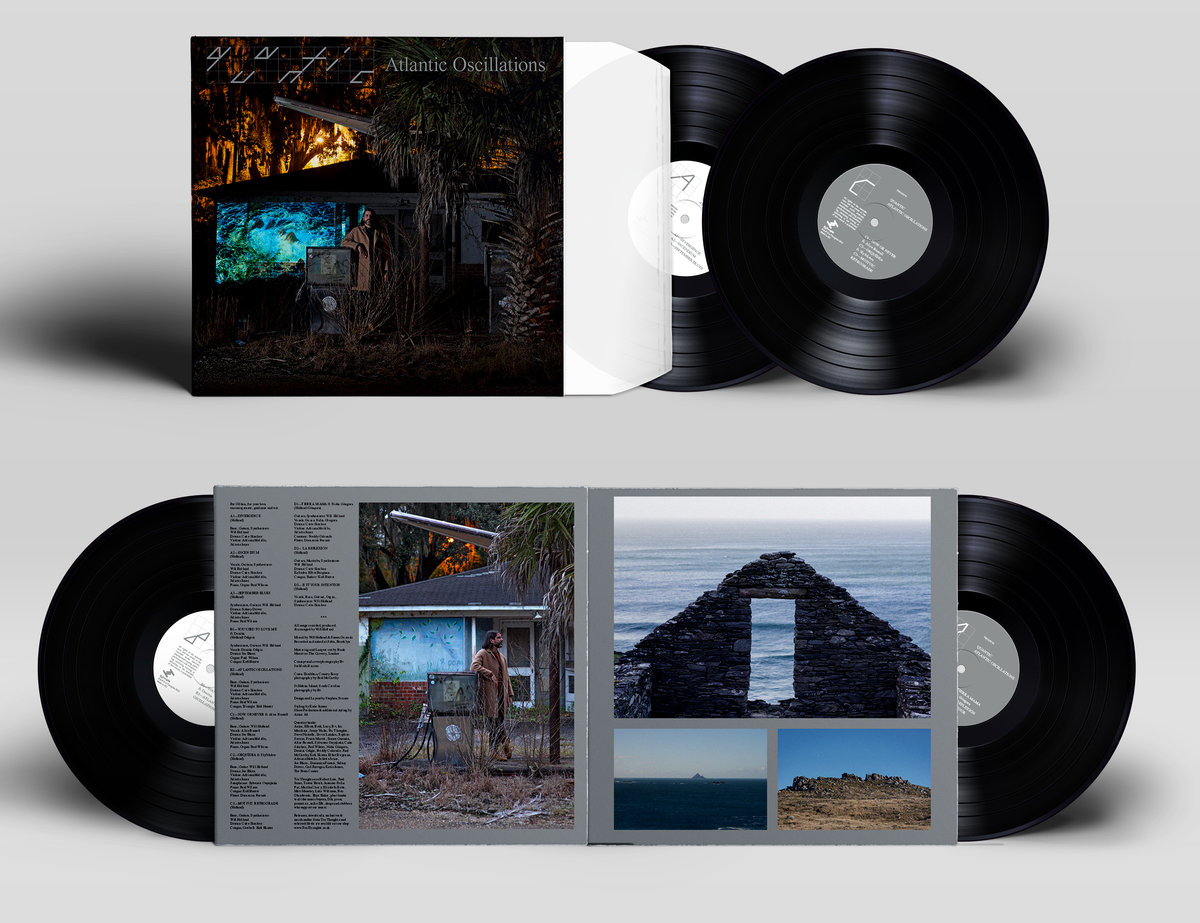 Will Holland – Quantic – has spent the past few years successfully indulging in his penchant for South American, living there and recording a multiplicity of releases under a multiplicity of names (Flowering Inferno, Quantic y Los Miticos del Ritmo, etc) but now, having based himself in New York, he returns to the electronic dancefloor. He’s been away from it a while. Perhaps he watched as his peer Bonobo’s career skyrocketed via DJ culture and thought, “Hmmmmm…” If that’s the case, he leaves any such competition in the dust. Atlantic Oscillations is flavoursome, unpretentious and, while it works the dancefloor, never forgets to be fun (just check the Latin piano action on “September Blues”). He switches between disco, house, paced songs (featuring Alice Russell, Nidia Góngora and Denitia), effective Hispanic interludes and even the occasional catchy chorus. This is how you make dance music albums that are more than just dancefloor albums in 2019.
Will Holland – Quantic – has spent the past few years successfully indulging in his penchant for South American, living there and recording a multiplicity of releases under a multiplicity of names (Flowering Inferno, Quantic y Los Miticos del Ritmo, etc) but now, having based himself in New York, he returns to the electronic dancefloor. He’s been away from it a while. Perhaps he watched as his peer Bonobo’s career skyrocketed via DJ culture and thought, “Hmmmmm…” If that’s the case, he leaves any such competition in the dust. Atlantic Oscillations is flavoursome, unpretentious and, while it works the dancefloor, never forgets to be fun (just check the Latin piano action on “September Blues”). He switches between disco, house, paced songs (featuring Alice Russell, Nidia Góngora and Denitia), effective Hispanic interludes and even the occasional catchy chorus. This is how you make dance music albums that are more than just dancefloor albums in 2019.
Scissor Sisters Scissor Sisters (Polydor)
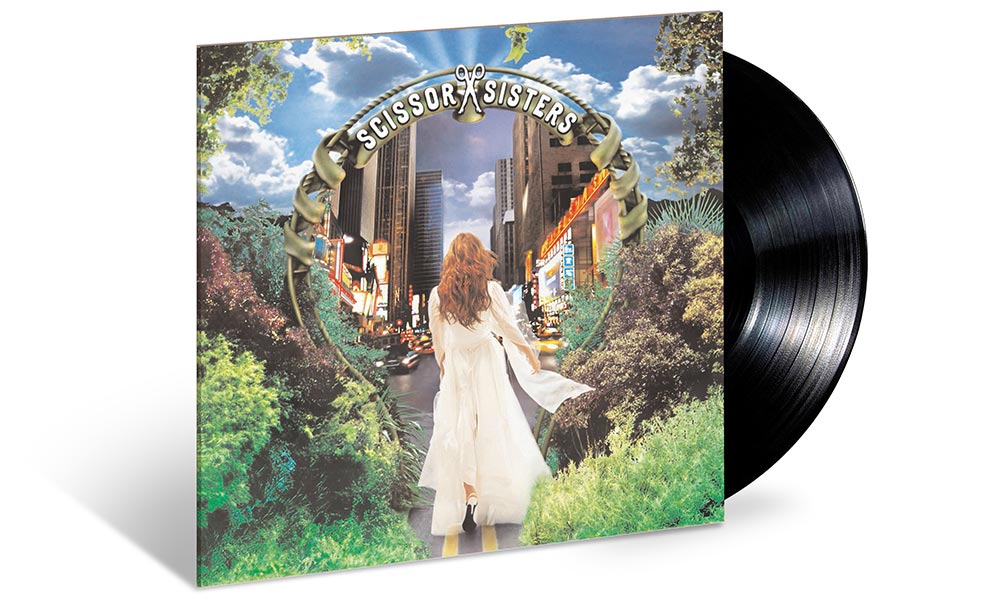 When I first heard this, well prior to its release in 2004, I was sort of a fan of Scissor Sisters via their disco version of Pink Floyd’s “Comfortably Numb” but when I heard the album I didn’t get it, I wanted something different, something more electronic, I’d guess, and I gave it three out of five stars when reviewing for the Daily Telegraph. I wrote that it was too much a pastiche of Elton John, Queen et al. By the end of 2004 it was my album of the year (it was also the best-selling album in the UK that year). Now I have the chance to belatedly state that it’s a gem - 5/5 - especially half-speed mastered to lush depth at Abbey Road (it comes with an embossed official A4 certificate that tells us so, as well as a 12” x 12” photo/lyric sheet). You know the big songs – “Take Your Mama”, “Laura”, “Tits on the Radio”, “Filthy/Gorgeous” – but don’t forget the brilliant elegiac closer “Return to Oz”, one of the album’s best. At the time, many muso sorts bridled at Scissor Sisters – many still do - but they were a brilliant pop band – and fantastic live too. I miss them.
When I first heard this, well prior to its release in 2004, I was sort of a fan of Scissor Sisters via their disco version of Pink Floyd’s “Comfortably Numb” but when I heard the album I didn’t get it, I wanted something different, something more electronic, I’d guess, and I gave it three out of five stars when reviewing for the Daily Telegraph. I wrote that it was too much a pastiche of Elton John, Queen et al. By the end of 2004 it was my album of the year (it was also the best-selling album in the UK that year). Now I have the chance to belatedly state that it’s a gem - 5/5 - especially half-speed mastered to lush depth at Abbey Road (it comes with an embossed official A4 certificate that tells us so, as well as a 12” x 12” photo/lyric sheet). You know the big songs – “Take Your Mama”, “Laura”, “Tits on the Radio”, “Filthy/Gorgeous” – but don’t forget the brilliant elegiac closer “Return to Oz”, one of the album’s best. At the time, many muso sorts bridled at Scissor Sisters – many still do - but they were a brilliant pop band – and fantastic live too. I miss them.
The Cosmics The Cosmics (The Cosmics)
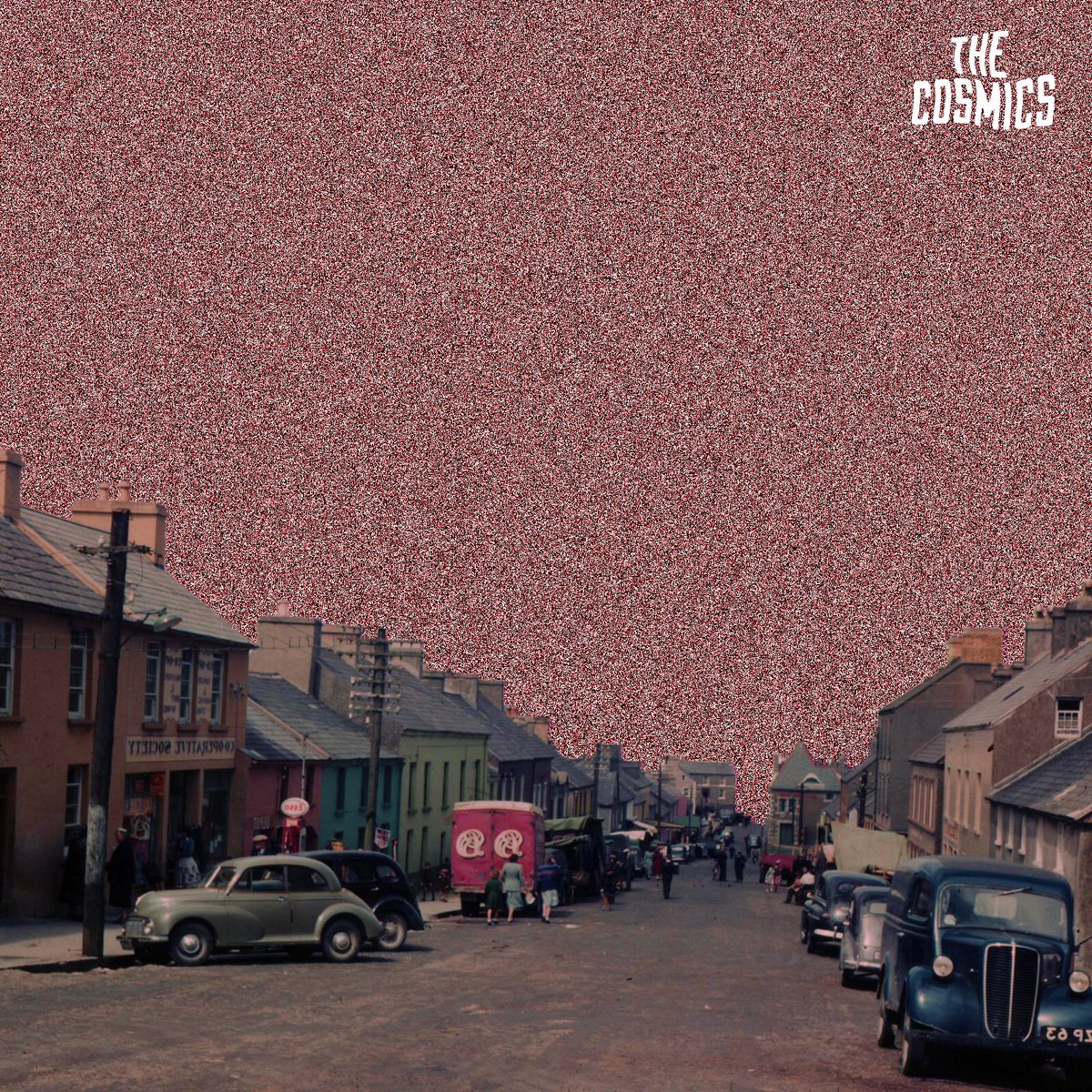 Young Birmingham band The Cosmics are everything you might want from a rockin’n’rollin’ garage racket, as well as quite a bit more. They have the Jesus & Mary Chain and My Bloody Valentine in their DNA but also slivers of The Cramps and, of course, their very own noisy bastard thing. Frontwoman Erin Curran drives the whole along with her bassline while her vocals have just the right combination of screech and song. Backing her are brothers Conor and Danny Boyle on guitar and drums. Each number starts as a song then enters the battle-zone zone where they throw everything they have at it. There are only six tracks but there’s more youthful verve and bite in its short span than most albums released this year. Comes on black-stained scarlet vinyl.
Young Birmingham band The Cosmics are everything you might want from a rockin’n’rollin’ garage racket, as well as quite a bit more. They have the Jesus & Mary Chain and My Bloody Valentine in their DNA but also slivers of The Cramps and, of course, their very own noisy bastard thing. Frontwoman Erin Curran drives the whole along with her bassline while her vocals have just the right combination of screech and song. Backing her are brothers Conor and Danny Boyle on guitar and drums. Each number starts as a song then enters the battle-zone zone where they throw everything they have at it. There are only six tracks but there’s more youthful verve and bite in its short span than most albums released this year. Comes on black-stained scarlet vinyl.
Hannah Cohen Welcome Home (Bella Union) + Doomsquad Let Yourself Be Seen (Bella Union)
 Two from the prolific and often intriguing label Bella Union. The best the press release can come with for Hannah Cohen is that her third album was inspired by moving house. It hardly induces thrills, but it’s of no consequence; whatever inspired the US singer-songwriter – and there is, indeed, a song about wanting to move house! - it’s a honeyed massage of an album. Cohen majors in electronically-tinged songs that encourage personal freedom and emanate hope (it opens “This is your life/Don’t let it just happen to you”). That said, I hardly seemed to listen to the lyrics but balmed around in the spacey warmth and positivity of the sound. Comes on transparent azure vinyl. Even more to my taste are Doomsquad, the brother'n'sisters trio of Trevor, Jaclyn, and Allie Blumas, who come on like an electro-age Talking Heads/Tom Tom Club mash-up with wordy, literate, funny, loosely politicised lyrics riding around chug-funk rhythms, although they’re also capable of acid techno, as on the bangin’ “Let Yourself Be Seen”. Comes on vinyl the colour of panda sperm.
Two from the prolific and often intriguing label Bella Union. The best the press release can come with for Hannah Cohen is that her third album was inspired by moving house. It hardly induces thrills, but it’s of no consequence; whatever inspired the US singer-songwriter – and there is, indeed, a song about wanting to move house! - it’s a honeyed massage of an album. Cohen majors in electronically-tinged songs that encourage personal freedom and emanate hope (it opens “This is your life/Don’t let it just happen to you”). That said, I hardly seemed to listen to the lyrics but balmed around in the spacey warmth and positivity of the sound. Comes on transparent azure vinyl. Even more to my taste are Doomsquad, the brother'n'sisters trio of Trevor, Jaclyn, and Allie Blumas, who come on like an electro-age Talking Heads/Tom Tom Club mash-up with wordy, literate, funny, loosely politicised lyrics riding around chug-funk rhythms, although they’re also capable of acid techno, as on the bangin’ “Let Yourself Be Seen”. Comes on vinyl the colour of panda sperm.
Depeche Mode Black Celebration | The 12” Singles + Music For The Masses | The 12” Singles Boxsets (Mute)
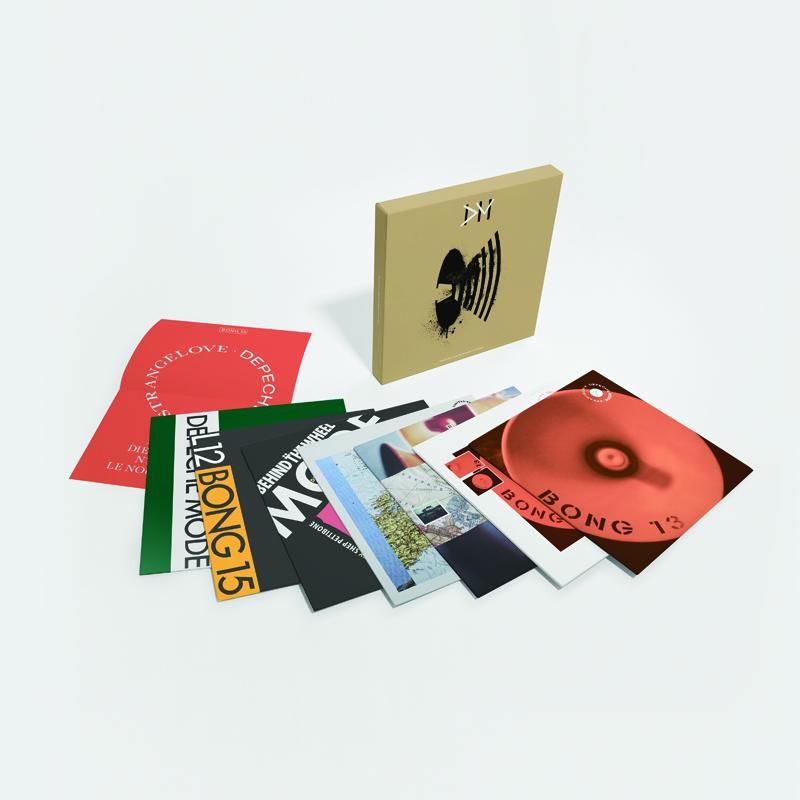 Another couple of completist volumes for Depeche Mode fans in Mute Records’ ongoing series mining the singles from every album. The last round took in the early Eighties and these two boxsets cover the middle of the decade, as the band slowly head into the dark (although always pop!). Little did anyone realise then that they’d soon achieve juggernaut status, and would be global superstars by the start of the next decade. The Black Celebration set contains five 45 RPM 12”s with the Flood version of “Stripped” a convincing exercise in EBM goth-pop, “A Question of Lust” even slower, but no less well constructed, leaving it to Phil Harding’s extended mix of “A Question of Time” to finally take things to the dancefloor. There are also live versions (notably of “Something to Do” and “Blasphemous Rumours”) and other remixes (notably the extended “But Not Tonight” and the Black Tulip mix of “Black Celebration”). Where the Black Celebration set is short on joy and dance-friendly tracks, the Music For The Masses collection – seven records – makes up for it with The Beatmasters’ dated but fun remixes of “Behind The Wheel” and “Route 66” (yes, that “Route 66”). There’s also a decent Shep Pettibone mix of “Behind the Wheel”: 1988 had arrived and house music’s impacting. There’s no live versions, but a tons of remixes, including the engagingly stompy JOIN mix of “Pleasure Little Treasure”, the Colourbox-ish Spanish Taster version of “To Have and To Hold”, while of the versions of “Strangelove” the Extended is the best, albeit very 1987. For those after a completely different side to the Mode “FPMIP” and “PIMPF” showcase a Wagnerian instrumental direction and one record has Alan Wilder performing Beethoven’s “Moonlight Sonata” solo on the piano. The Black Celebration set comes with a poster for “A Question of Lust” and Music For The Masses has a poster for “Strangelove”.
Another couple of completist volumes for Depeche Mode fans in Mute Records’ ongoing series mining the singles from every album. The last round took in the early Eighties and these two boxsets cover the middle of the decade, as the band slowly head into the dark (although always pop!). Little did anyone realise then that they’d soon achieve juggernaut status, and would be global superstars by the start of the next decade. The Black Celebration set contains five 45 RPM 12”s with the Flood version of “Stripped” a convincing exercise in EBM goth-pop, “A Question of Lust” even slower, but no less well constructed, leaving it to Phil Harding’s extended mix of “A Question of Time” to finally take things to the dancefloor. There are also live versions (notably of “Something to Do” and “Blasphemous Rumours”) and other remixes (notably the extended “But Not Tonight” and the Black Tulip mix of “Black Celebration”). Where the Black Celebration set is short on joy and dance-friendly tracks, the Music For The Masses collection – seven records – makes up for it with The Beatmasters’ dated but fun remixes of “Behind The Wheel” and “Route 66” (yes, that “Route 66”). There’s also a decent Shep Pettibone mix of “Behind the Wheel”: 1988 had arrived and house music’s impacting. There’s no live versions, but a tons of remixes, including the engagingly stompy JOIN mix of “Pleasure Little Treasure”, the Colourbox-ish Spanish Taster version of “To Have and To Hold”, while of the versions of “Strangelove” the Extended is the best, albeit very 1987. For those after a completely different side to the Mode “FPMIP” and “PIMPF” showcase a Wagnerian instrumental direction and one record has Alan Wilder performing Beethoven’s “Moonlight Sonata” solo on the piano. The Black Celebration set comes with a poster for “A Question of Lust” and Music For The Masses has a poster for “Strangelove”.
Various Instant Replay (ECC/Proper)
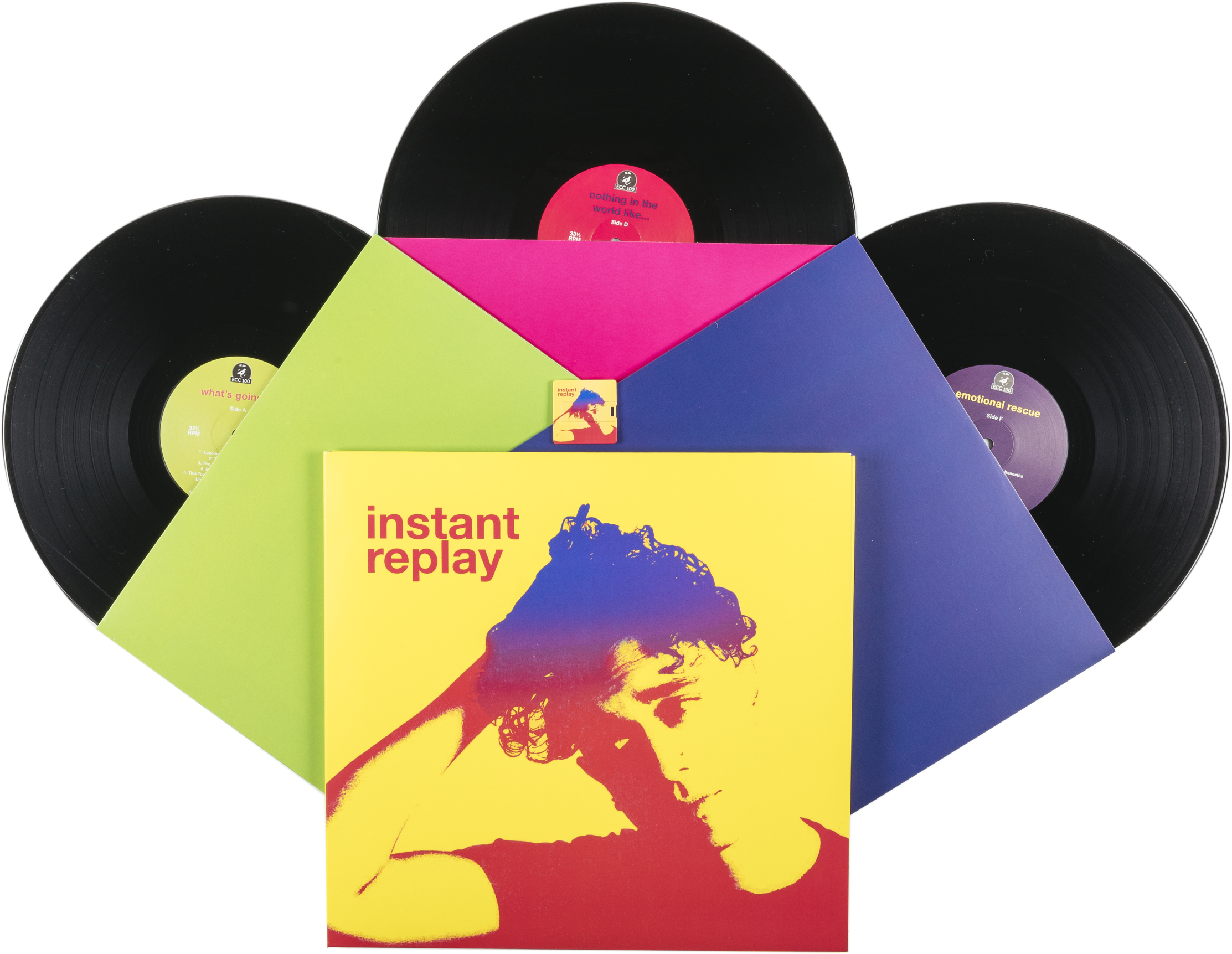 Following on from 2017’s Self Preservation Society collection of covers of Sixties/Seventies songs, this new volume is full of songs first released between 1971 and 1981. It’s a triple-header in fold-out triple sleeve, sturdily presented and recorded, and what’s rather wonderful is that all these exclusive cuts are only available on vinyl. The people behind it are Mark Constantine, boss of the cosmetics company Lush, and Simon Emmerson, of Afro Celt Sound System, and the choice of musicians reflects their folk world connections. But this is not a folk album, more a set of reimaginings that veers towards folk upon occasion. For instance, Rhodri Marsden’s excerpt from Mike Oldfield’s Tubular Bells is fairly folky but Honeyfeet’s take on The Pretenders’ “Brass in Pocket” is a relatively straight brass-boosted cover. The choices of song are broad, ranging from The Clash’s “Lost in the Supermarket” to Jethro Tull and Vangelis. Artists involved include Green Gartside, Teddy Thompson (on Marvin Gaye’s “What’s Going On” and Stevie Wonder’s “If It’s Magic”), Stealing Sheep and Marry Waterson, and songs covered include ones by Peter Gabriel, Fleetwood Mac, Sparks, Leonard Cohen, The Jam and The Stranglers. If anything, I’d have welcomed more folky alternate takes on some of the songs – eg, it’ a bit pointless covering Dan Hartman’s disco classic “Instant Replay” as straight disco – but overall, an entertaining collection. Comes with a four page 12” x 12” insert about the songs.
Following on from 2017’s Self Preservation Society collection of covers of Sixties/Seventies songs, this new volume is full of songs first released between 1971 and 1981. It’s a triple-header in fold-out triple sleeve, sturdily presented and recorded, and what’s rather wonderful is that all these exclusive cuts are only available on vinyl. The people behind it are Mark Constantine, boss of the cosmetics company Lush, and Simon Emmerson, of Afro Celt Sound System, and the choice of musicians reflects their folk world connections. But this is not a folk album, more a set of reimaginings that veers towards folk upon occasion. For instance, Rhodri Marsden’s excerpt from Mike Oldfield’s Tubular Bells is fairly folky but Honeyfeet’s take on The Pretenders’ “Brass in Pocket” is a relatively straight brass-boosted cover. The choices of song are broad, ranging from The Clash’s “Lost in the Supermarket” to Jethro Tull and Vangelis. Artists involved include Green Gartside, Teddy Thompson (on Marvin Gaye’s “What’s Going On” and Stevie Wonder’s “If It’s Magic”), Stealing Sheep and Marry Waterson, and songs covered include ones by Peter Gabriel, Fleetwood Mac, Sparks, Leonard Cohen, The Jam and The Stranglers. If anything, I’d have welcomed more folky alternate takes on some of the songs – eg, it’ a bit pointless covering Dan Hartman’s disco classic “Instant Replay” as straight disco – but overall, an entertaining collection. Comes with a four page 12” x 12” insert about the songs.
Auntie Flo Kabsa EP (Disco Halal) + Moscoman Wave Rave (Life and Death) + Sam & Dave ‘Til the World Blows Up (Classic)
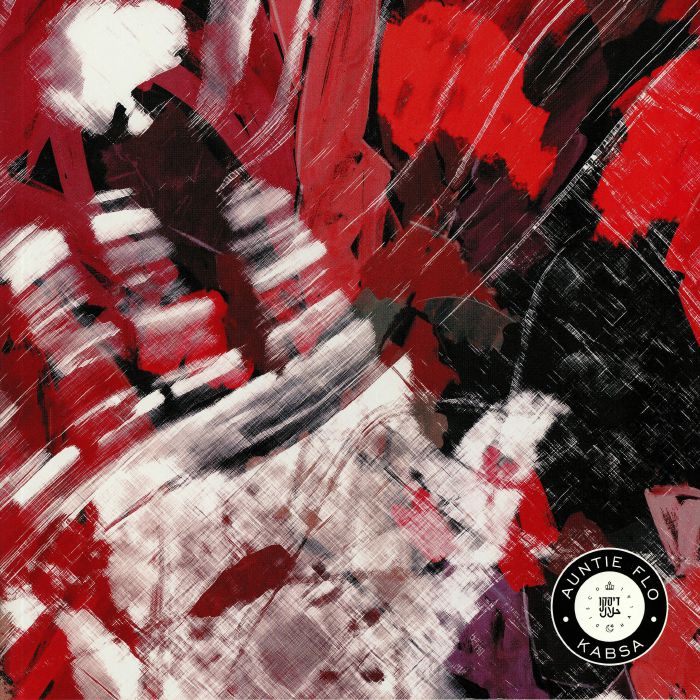 Three reviews of dance 12”s. The Disco Halal label continues to wander off clubland’s usual beaten path. London DJ-producer Brian D’Souza – AKA Auntie Flo – gives us four cuts that are primarily twinkly percussive noodle rather than bangers. Heavily Balearic in scope, these include a Nicola Cruz remix that pares things back to a techier Afro-roll and is very usable. The exception is “Ras” which has a sterner edge. Disco Halal label boss Moscoman – Berlin-based Israeli Chem Moscovici – has proved himself a winner when it comes to combining 21st century dancefloor drive with old-fashioned analogue electropop catchiness. Wave Rave shows he’s not lost his touch, on three cuts, notably the title track, although the third “Dinner For One” is a gnarly Plastikman-ish creature which demonstrates he can also be twisted when needs be. Cool New York house is the game for Sam + Dave’s “’Til the World Blow Up”, featuring Chicago houser Mike Dunn on vocals,promising to “keep you jackin’ to this here groove”. The title cut leads an EP that never ups the pace but emanates a keys-smoothed bubbliness. Those after a more upfront sound should turn to “Day One (Oh Baby)”. A classy package.
Three reviews of dance 12”s. The Disco Halal label continues to wander off clubland’s usual beaten path. London DJ-producer Brian D’Souza – AKA Auntie Flo – gives us four cuts that are primarily twinkly percussive noodle rather than bangers. Heavily Balearic in scope, these include a Nicola Cruz remix that pares things back to a techier Afro-roll and is very usable. The exception is “Ras” which has a sterner edge. Disco Halal label boss Moscoman – Berlin-based Israeli Chem Moscovici – has proved himself a winner when it comes to combining 21st century dancefloor drive with old-fashioned analogue electropop catchiness. Wave Rave shows he’s not lost his touch, on three cuts, notably the title track, although the third “Dinner For One” is a gnarly Plastikman-ish creature which demonstrates he can also be twisted when needs be. Cool New York house is the game for Sam + Dave’s “’Til the World Blow Up”, featuring Chicago houser Mike Dunn on vocals,promising to “keep you jackin’ to this here groove”. The title cut leads an EP that never ups the pace but emanates a keys-smoothed bubbliness. Those after a more upfront sound should turn to “Day One (Oh Baby)”. A classy package.
Black Midi Schlagenheim (Rough Trade)
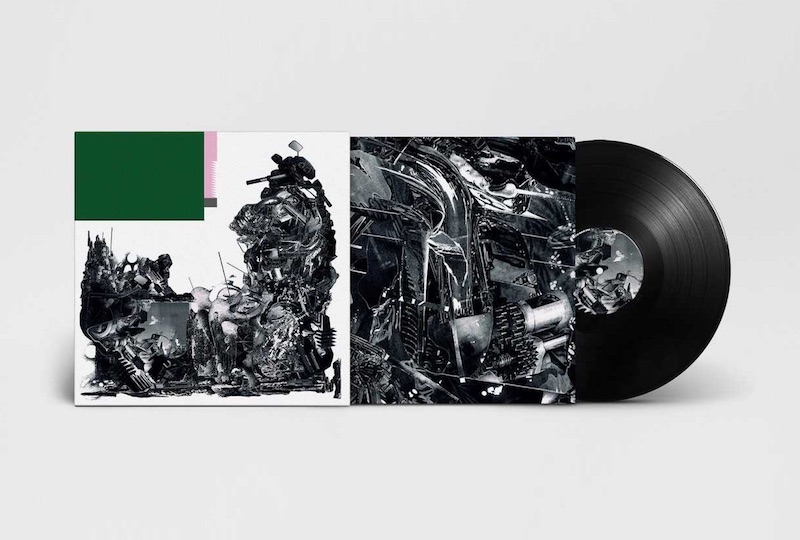 This lot are nuts. Imagine the early, ballistic Red Hot Chili Peppers as a prog rock band and that’s about a quarter of the way there. Maybe a bit of World Domination Enterprises’ post-hip hop abrasiveness or, say, a lunatic version of The Futureheads with the breaks fully off. And, perhaps, a dose of thrash metal in there too. On gatefold, this debut album does not so much welcome the listener in as challenge them wildly and demand they see the band live. Build around a raw slap-funk rhythm section, the songs stop and start at will, with the lyrics offering a bizarre commentary, sometimes actorly, arch, mannered, at other times antic, screeching. More like unsteady tropical weather than music, there are episodes of sunny calm but you know, for sure, that squalls are coming in on those clouds. The most off-the-wall music of the month.
This lot are nuts. Imagine the early, ballistic Red Hot Chili Peppers as a prog rock band and that’s about a quarter of the way there. Maybe a bit of World Domination Enterprises’ post-hip hop abrasiveness or, say, a lunatic version of The Futureheads with the breaks fully off. And, perhaps, a dose of thrash metal in there too. On gatefold, this debut album does not so much welcome the listener in as challenge them wildly and demand they see the band live. Build around a raw slap-funk rhythm section, the songs stop and start at will, with the lyrics offering a bizarre commentary, sometimes actorly, arch, mannered, at other times antic, screeching. More like unsteady tropical weather than music, there are episodes of sunny calm but you know, for sure, that squalls are coming in on those clouds. The most off-the-wall music of the month.
Minyo Crusaders Echoes of Japan (P-Vine/Mais Um)
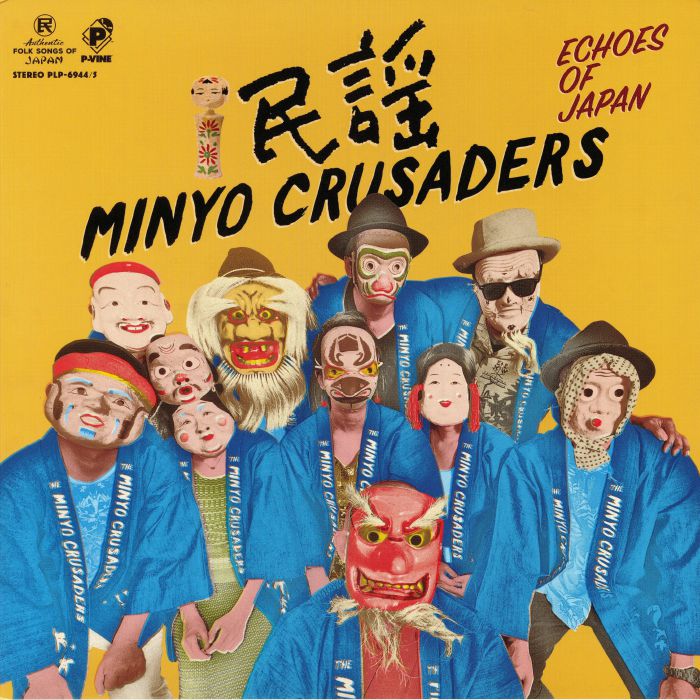 Back in Henry VIII’s time do you think madrigals were an exercise in technique and virtuosic musical skill, sung in hushed rooms of devotees? Like hell. Roast boars were being thrown about the booze banquet as madrigals were ladled out by local half cut troubadour blaggers, all interspersed with filthy-minded chit-chat. Out in Japan minyo has had a similar trajectory, a long-ago style that’s become formalized to the point of joylessness. Thus Tokyo’s Minyo Crusaders are here to represent it as something more thrilling. The songs chosen are Japanese classics but injected with a love of Latin - “Tanko Bushi” is pure carnival – and also African themes and even reggae, while “Toichin Bushi” is lovely organ-addled easy listening jazz. This ten-piece sound like they’d set a field at WOMAD festival alight. Then they finish with the inarguable acapella “Sumo Jinku” which reminds beautifully where it all hails from.
Back in Henry VIII’s time do you think madrigals were an exercise in technique and virtuosic musical skill, sung in hushed rooms of devotees? Like hell. Roast boars were being thrown about the booze banquet as madrigals were ladled out by local half cut troubadour blaggers, all interspersed with filthy-minded chit-chat. Out in Japan minyo has had a similar trajectory, a long-ago style that’s become formalized to the point of joylessness. Thus Tokyo’s Minyo Crusaders are here to represent it as something more thrilling. The songs chosen are Japanese classics but injected with a love of Latin - “Tanko Bushi” is pure carnival – and also African themes and even reggae, while “Toichin Bushi” is lovely organ-addled easy listening jazz. This ten-piece sound like they’d set a field at WOMAD festival alight. Then they finish with the inarguable acapella “Sumo Jinku” which reminds beautifully where it all hails from.
Generation X Generation X Boxset (Chrysalis)
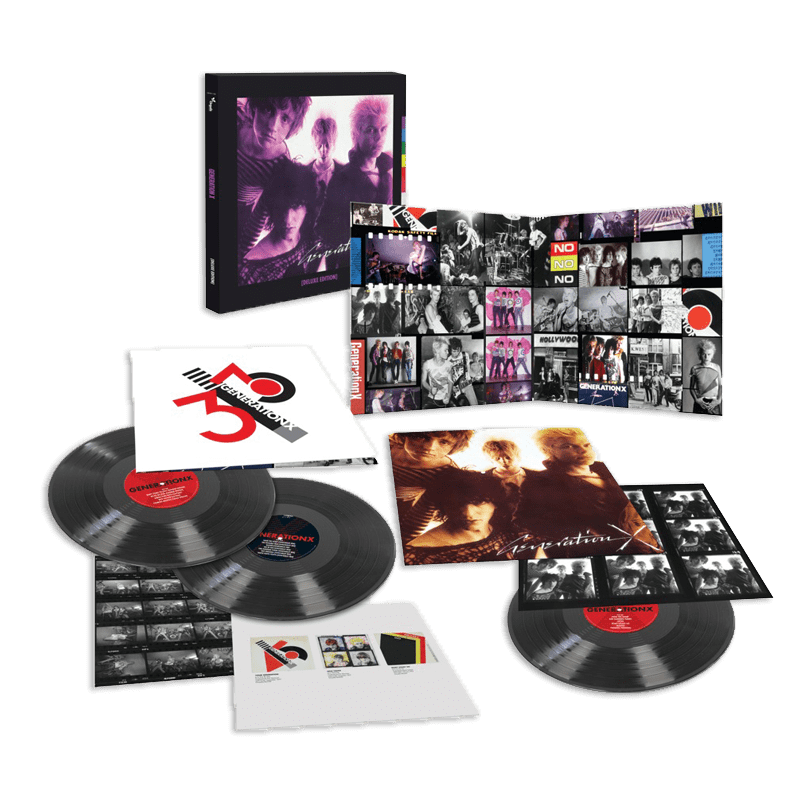 While Billy Idol was one of the original Bromley contingent who were amongst The Sex Pistols and UK punk’s earliest adopters, there was always something proudly plastic about his band Generation X. They were almost a Seventies pop-rock outfit fancy-dressed as punks. Lead singer Billy Idol’s later career especially flags this up. Their first album, however, which now arrives in a three disc version, featuring two records of B-sides and outtakes, showcaseing their slick ability to write catchy songs with vivacious guitar attack. Back in early 1978 songs such as “Kleenex”, “Ready Steady Go” and “Kiss Me Deadly”, produced by Martin Rushent, were indicators of where so-called new wave would go next, as punk mated with pop and, for a few short years, filled the charts with catchy buzzsaw amphetamine anthems.
While Billy Idol was one of the original Bromley contingent who were amongst The Sex Pistols and UK punk’s earliest adopters, there was always something proudly plastic about his band Generation X. They were almost a Seventies pop-rock outfit fancy-dressed as punks. Lead singer Billy Idol’s later career especially flags this up. Their first album, however, which now arrives in a three disc version, featuring two records of B-sides and outtakes, showcaseing their slick ability to write catchy songs with vivacious guitar attack. Back in early 1978 songs such as “Kleenex”, “Ready Steady Go” and “Kiss Me Deadly”, produced by Martin Rushent, were indicators of where so-called new wave would go next, as punk mated with pop and, for a few short years, filled the charts with catchy buzzsaw amphetamine anthems.
Kompromat Traum Unde Existenz (Citizen/!K7) + Manu Louis Cream Parade (Igloo)
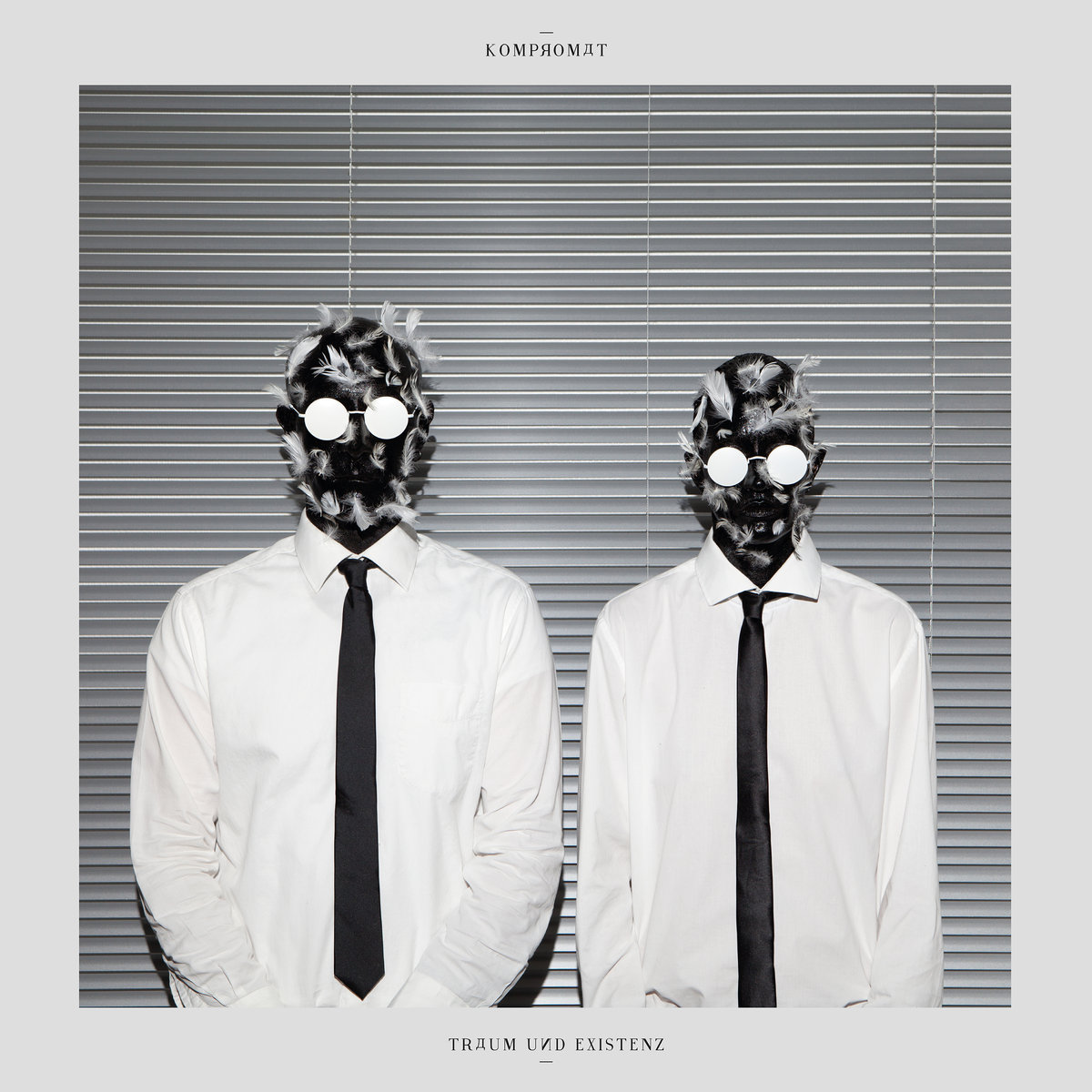 A couple of electropop corkers. Kompromat is techno don Vitalic with Rebeka Warrior (AKA Julia Lanoë) on vocals. They are a French outfit by origin but their music is utterly Teutonic with Warrior’s vocals in clearly enunciated German (although there are a couple of Gallic moments, notably on the slow-rolling loveliness of “De Mon Âme à Ton Âme”). Retro-styled in synths but staunchly contemporary in rhythmic feel, it’s ear-delighting stuff, and great to see Vitalic back to his best after some exercises in pop that didn’t always suit. Comes in lyric inner sleeve. Belgian artist Manu Louis is a completely different kettle of synth-hop. His second album has dancefloor throb but his French and English patter – it’s hardly singing, except on the waltz-ballad “Data Farm” – ride the beats like a rap. There are also saxophone interludes. There’s something a bit 1979 about it all, a bit Crammed Discs, resulting in a varied package that holds the attention.
A couple of electropop corkers. Kompromat is techno don Vitalic with Rebeka Warrior (AKA Julia Lanoë) on vocals. They are a French outfit by origin but their music is utterly Teutonic with Warrior’s vocals in clearly enunciated German (although there are a couple of Gallic moments, notably on the slow-rolling loveliness of “De Mon Âme à Ton Âme”). Retro-styled in synths but staunchly contemporary in rhythmic feel, it’s ear-delighting stuff, and great to see Vitalic back to his best after some exercises in pop that didn’t always suit. Comes in lyric inner sleeve. Belgian artist Manu Louis is a completely different kettle of synth-hop. His second album has dancefloor throb but his French and English patter – it’s hardly singing, except on the waltz-ballad “Data Farm” – ride the beats like a rap. There are also saxophone interludes. There’s something a bit 1979 about it all, a bit Crammed Discs, resulting in a varied package that holds the attention.
Primal Scream Maximum Rock’n’Roll: The Singles Volumes 1 + 2 (Sony)
 Two separately available volumes gather together all Primal Scream’s singles. Actually their 1985 opening shot “All Fall Down” is missing and we start with “Velocity Girl”, which was the B-side to their second single, “Crystal Crescent”. It’s a better song than either of the aforementioned (which is why it presumably made it onto the indie-defining C86 compilation). Most vinyl buyers will likely plumb for Volume 1 which runs from the band’s scuffed beginnings, through their dodgy wannabe-MC5 years, through their glorious but overegged-after-the-fact Screamdelica times, through their not-as-bad-as-you-may-recall wannabe-Stones period (you either hate “Rocks” or enjoy it for what it is), and finish on the gnarly speed-fried likes of “Swastika Eyes” and “Kill All Hippies”, as the Nineties burnt out around them. Volume 2 is a less even and less well-known journey, taking them from millennial noise-fest “Accelerator” to the recent polished pop-rock of “100% or Nothing” (which could be a Killers song, if the killers did songs I enjoyed listening to… which they don’t). Late period Scream are more given to grand gestures, lyrical cliché and unlikely, oddball tangents (such as Spector-esque orchestration), but there’s also much to enjoy; the storming desperation of “Can’t Go Back”, the easy-going cover of The Gun Club’s “Goodbye Johnny”, the anthemic Seventies rock pastiche “Country Girl”, to name but three. Not every single’s here, but there are enough of them to remind that, while they’re often blatant stylistic imitators, Primal Scream can also be a great listen. Both come with photo/info inner sleeves, as well as the same gatefold images and 12” x 12” eight page photo booklet in each.
Two separately available volumes gather together all Primal Scream’s singles. Actually their 1985 opening shot “All Fall Down” is missing and we start with “Velocity Girl”, which was the B-side to their second single, “Crystal Crescent”. It’s a better song than either of the aforementioned (which is why it presumably made it onto the indie-defining C86 compilation). Most vinyl buyers will likely plumb for Volume 1 which runs from the band’s scuffed beginnings, through their dodgy wannabe-MC5 years, through their glorious but overegged-after-the-fact Screamdelica times, through their not-as-bad-as-you-may-recall wannabe-Stones period (you either hate “Rocks” or enjoy it for what it is), and finish on the gnarly speed-fried likes of “Swastika Eyes” and “Kill All Hippies”, as the Nineties burnt out around them. Volume 2 is a less even and less well-known journey, taking them from millennial noise-fest “Accelerator” to the recent polished pop-rock of “100% or Nothing” (which could be a Killers song, if the killers did songs I enjoyed listening to… which they don’t). Late period Scream are more given to grand gestures, lyrical cliché and unlikely, oddball tangents (such as Spector-esque orchestration), but there’s also much to enjoy; the storming desperation of “Can’t Go Back”, the easy-going cover of The Gun Club’s “Goodbye Johnny”, the anthemic Seventies rock pastiche “Country Girl”, to name but three. Not every single’s here, but there are enough of them to remind that, while they’re often blatant stylistic imitators, Primal Scream can also be a great listen. Both come with photo/info inner sleeves, as well as the same gatefold images and 12” x 12” eight page photo booklet in each.
The Last Poets Understand What Dub Is (Studio Rockers)
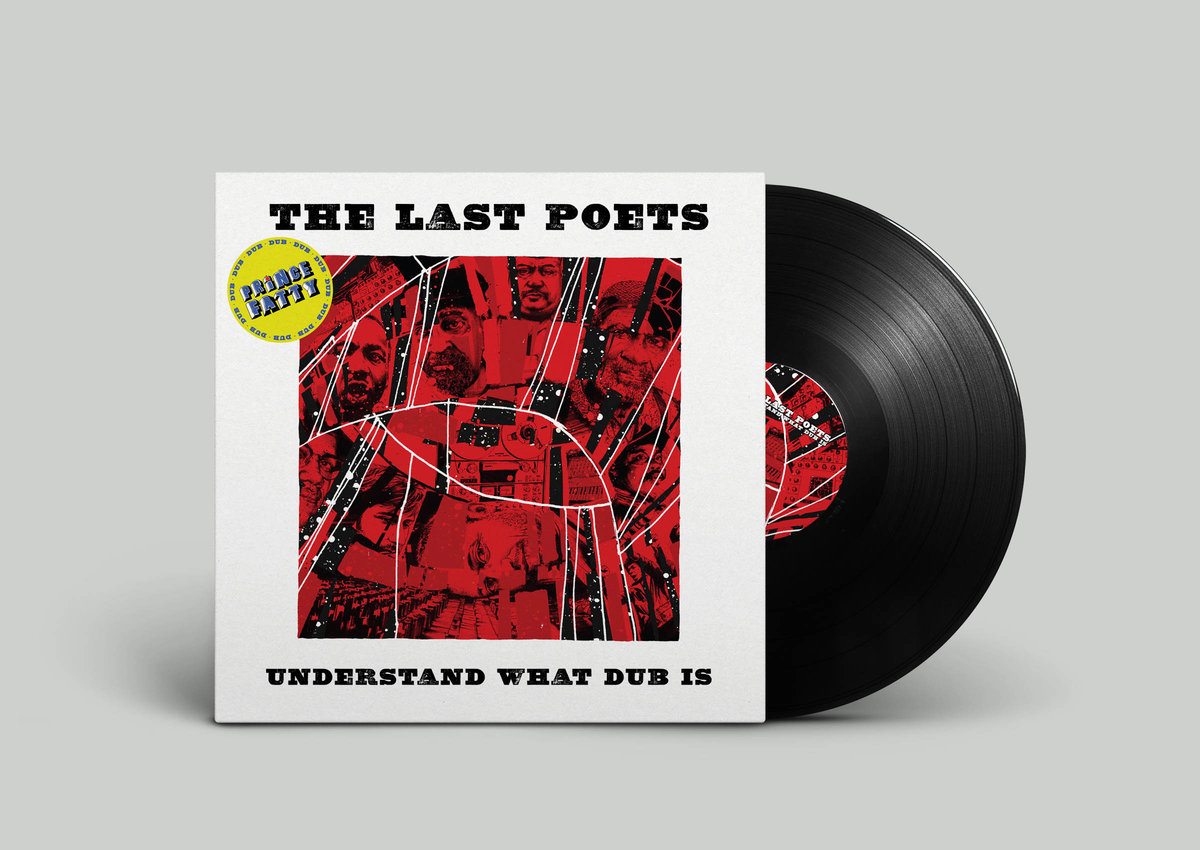 Last year America’s original black beatnik rebels and proto-hop hop dons The Last Poets returned with a 50th anniversary album Understand What Black Is. While the words were great - and in concert they were still riveting - the album didn’t always persuade this listener as a musical concoction. Now, however, Brighton dub master Prince Fatty has taken it apart and stewed it in his studio. Those after the full literary experience will find that not all the lyrics are in place, yet the message remains intact. For me. the head-nod rhythms amplify the potency of the remaining wordage. Whether sticking it to the American political machine on “Rain of Terror” or mellowing right out with a flute solo on “What I Want to See”, this set makes a great companion piece to the original album and, as a musical experience, betters it.
Last year America’s original black beatnik rebels and proto-hop hop dons The Last Poets returned with a 50th anniversary album Understand What Black Is. While the words were great - and in concert they were still riveting - the album didn’t always persuade this listener as a musical concoction. Now, however, Brighton dub master Prince Fatty has taken it apart and stewed it in his studio. Those after the full literary experience will find that not all the lyrics are in place, yet the message remains intact. For me. the head-nod rhythms amplify the potency of the remaining wordage. Whether sticking it to the American political machine on “Rain of Terror” or mellowing right out with a flute solo on “What I Want to See”, this set makes a great companion piece to the original album and, as a musical experience, betters it.
Nazareth Nazareth + Exercises + Close Enough for Rock’n’Roll + Play’n’The Game + Malice in Wonderland + The Fool Circle (BMG)
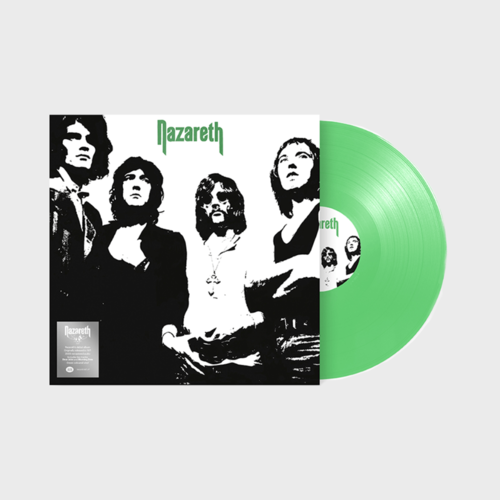 For a few years in the mid-Seventies Scottish rockets Nazareth were big business, a band with a sound and live career that burned bright in the tailwind of Deep Purple, who they much resemble on their eponymous 1971 debut album. By their second, however, songs such as “Cat’s Eye, Apple Pie” and “Fool About You” show a jolly Paul McCartney-esque grasp of pop. The re-releases that have reached theartsdesk on Vinyl then jump to 1976 when Nazareth were revelling in US success and fired out two albums, Close Enough for Rock’n’Roll, and Play’n’The Game, which both contain snappy stadium stompers pitched between Slade and Status Quo with a pinch of Led Zep. The latter concludes with the almost-punky rock’n’roll “LA Girls”. Nazareth know their way around a hook and are mostly a lot less heavy than this neophyte imagined. In fact, the last two albums, from 1980 and 1981, when most of their peers were revitalizing their sound in the wake of the galloping New Wave of British Heavy Metal, are almost wilfully chugging and melodic (the incongruously lilting and tropical live acoustic take on “Cocaine” is especially unlikely). Nazareth are more pop than you might expect and deserve rediscovery by some Quentin Tarantino sort. The whole lot come on coloured vinyl with Exercises and Close Enough for Rock’n’Roll on gatefold.
For a few years in the mid-Seventies Scottish rockets Nazareth were big business, a band with a sound and live career that burned bright in the tailwind of Deep Purple, who they much resemble on their eponymous 1971 debut album. By their second, however, songs such as “Cat’s Eye, Apple Pie” and “Fool About You” show a jolly Paul McCartney-esque grasp of pop. The re-releases that have reached theartsdesk on Vinyl then jump to 1976 when Nazareth were revelling in US success and fired out two albums, Close Enough for Rock’n’Roll, and Play’n’The Game, which both contain snappy stadium stompers pitched between Slade and Status Quo with a pinch of Led Zep. The latter concludes with the almost-punky rock’n’roll “LA Girls”. Nazareth know their way around a hook and are mostly a lot less heavy than this neophyte imagined. In fact, the last two albums, from 1980 and 1981, when most of their peers were revitalizing their sound in the wake of the galloping New Wave of British Heavy Metal, are almost wilfully chugging and melodic (the incongruously lilting and tropical live acoustic take on “Cocaine” is especially unlikely). Nazareth are more pop than you might expect and deserve rediscovery by some Quentin Tarantino sort. The whole lot come on coloured vinyl with Exercises and Close Enough for Rock’n’Roll on gatefold.
Various Purple Disco Machine: Discotheque (Glitterbox) + Various Future Disco 12: Technicolour Nights (Needwant) + Various Fabio & Grooverider: 30 Years of Rage Parts 1 + 2 (Above Board)
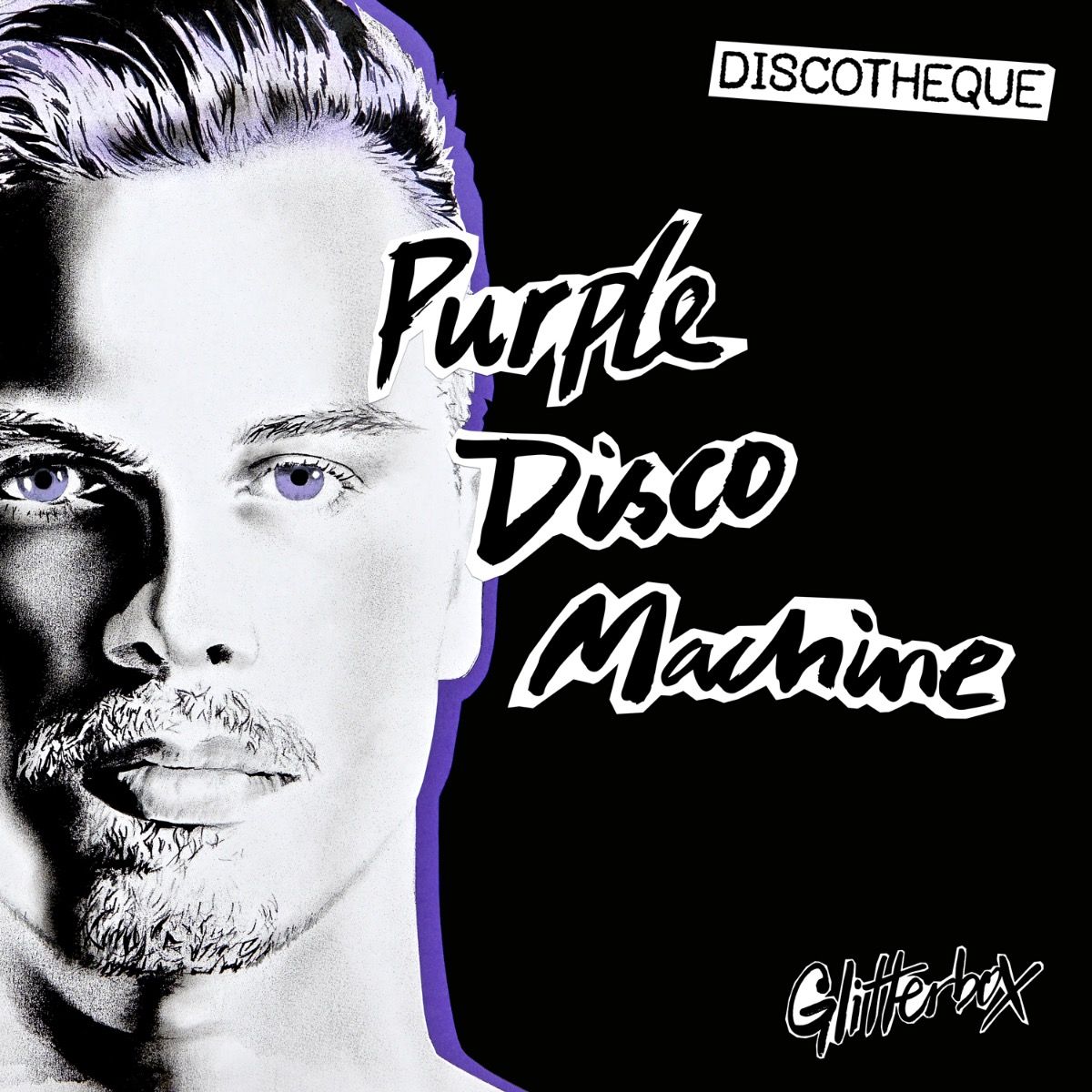 Dance music comps alert. The debut compilation from Purple Disco Machine – AKA German disco reinventor Tino Pionek - offers a selection of unmixed cuts over two discs, matching old tunes, such as Gladys Knight’s “Taste of Bitter Love”, Herbie Hancock’s funky “Just Around the Corner” and Patrick Cowley’s even funkier “If You Feel It”, alongside new tunes and remixes of new tunes, such as Pionek’s electro-bumpin’ take on Lenny Dee & Tommy Musto’s early techno-house effort “The Morning After”. Perhaps best of all, though, is a remix of Afrobeat don Dele Sosimi’s “You No Fit Touch Am” by British producer Medlar, which goes on forever, stretching the groove just right. All in all, a tasty package for DJs but also for fans of dancing around their living room on a random evening. Sean Brosnan’s Future Disco series reaches ten years old with its twelfth edition, entitled Technicolour Nights. It’s worth the price of entry for the fab Future Disco edit of Sink Ya Teeth’s post-punk disco day-after-the-night-before gem “If You See Me”, although the Side C double-header of Jamie Jones’s disco-house mix of Teddy Tendergrass’s “Life is a Song Worth Singing” and Darhsan Jesrani’s coolly sparse “Take Me” featuring Charli Umami are close contenders. Side A openers Flamingo Pier and Louis La Roche & Mylo both nail simple, convincing dancefloor place-holders, and elsewhere there’s a Yusek remix of Bertrand Burgalat and a Kraak & Smaak remix of The Funk Hunters’ “Party Rockin”. All in all, the Future Disco party continues apace. Comes on more spunky-glooped vinyl. 30 Years of Rage is actually two separately sold double album sets, both celebrating the London club that was a key nurturing place for the breakbeat hardcore that defined rave in the south at the start of the Nineties and, eventually, gave us a jungle and drum & bass. Fabio & Grooverider were DJs at the heart of all that and they combine much-loved classics, such as Zero B’s “Lock-up” and Lennie De Ice’s “We Are IE”, with obscurer but equally era-capturing slammers like Frankie Bones’ oddly soulful “Just As Long As I Got You”, and the darkside stunner “Champion Sound (Alliance Remix)” by Q Project. Some younglings are now reinvestigating this cheaply produced music, often created in bedrooms, because it exudes an energy that leaves wet fart pristine 120 BPM Ibiza plodders in the dust. I don’t know how they’re packaged as I’ve been sent white labels. However, I can tell you that the music, while very much of its time, still burns bright with MDMA energy and scene-exploding urgency.
Dance music comps alert. The debut compilation from Purple Disco Machine – AKA German disco reinventor Tino Pionek - offers a selection of unmixed cuts over two discs, matching old tunes, such as Gladys Knight’s “Taste of Bitter Love”, Herbie Hancock’s funky “Just Around the Corner” and Patrick Cowley’s even funkier “If You Feel It”, alongside new tunes and remixes of new tunes, such as Pionek’s electro-bumpin’ take on Lenny Dee & Tommy Musto’s early techno-house effort “The Morning After”. Perhaps best of all, though, is a remix of Afrobeat don Dele Sosimi’s “You No Fit Touch Am” by British producer Medlar, which goes on forever, stretching the groove just right. All in all, a tasty package for DJs but also for fans of dancing around their living room on a random evening. Sean Brosnan’s Future Disco series reaches ten years old with its twelfth edition, entitled Technicolour Nights. It’s worth the price of entry for the fab Future Disco edit of Sink Ya Teeth’s post-punk disco day-after-the-night-before gem “If You See Me”, although the Side C double-header of Jamie Jones’s disco-house mix of Teddy Tendergrass’s “Life is a Song Worth Singing” and Darhsan Jesrani’s coolly sparse “Take Me” featuring Charli Umami are close contenders. Side A openers Flamingo Pier and Louis La Roche & Mylo both nail simple, convincing dancefloor place-holders, and elsewhere there’s a Yusek remix of Bertrand Burgalat and a Kraak & Smaak remix of The Funk Hunters’ “Party Rockin”. All in all, the Future Disco party continues apace. Comes on more spunky-glooped vinyl. 30 Years of Rage is actually two separately sold double album sets, both celebrating the London club that was a key nurturing place for the breakbeat hardcore that defined rave in the south at the start of the Nineties and, eventually, gave us a jungle and drum & bass. Fabio & Grooverider were DJs at the heart of all that and they combine much-loved classics, such as Zero B’s “Lock-up” and Lennie De Ice’s “We Are IE”, with obscurer but equally era-capturing slammers like Frankie Bones’ oddly soulful “Just As Long As I Got You”, and the darkside stunner “Champion Sound (Alliance Remix)” by Q Project. Some younglings are now reinvestigating this cheaply produced music, often created in bedrooms, because it exudes an energy that leaves wet fart pristine 120 BPM Ibiza plodders in the dust. I don’t know how they’re packaged as I’ve been sent white labels. However, I can tell you that the music, while very much of its time, still burns bright with MDMA energy and scene-exploding urgency.
U2 The Unforgettable Fire + How To Dismantle an Atomic Bomb (Island)
 Two moments from U2’s career reappear for fresh scrutiny, both on coloured vinyl with 16 page lyric booklets. First off is the 35th anniversary edition of The Unforgettable Fire which arrives on maroon vinyl they’re calling “wine”. Back when it first came out The Unforgettable Fire was a bridging album between the tightly conceived, wiry passion of their early work and the Celtic bombast of The Joshua Tree and Rattle and Hum which followed (and launched them to biggest-band-in-the-world status for a while). This writer abhors the latter albums and The Unforgettable Fire is on its way there but songs such as the title track have a catchy pop underpinning. Or perhaps it’s just my nostalgic recollection of very briefly trying to like U2 as all my peers did! By the time of How to Dismantle an Atomic Bomb in 2004 I well knew what I thought of U2 but they also well knew what people like me thought of them and had consequently long pushed their sound to all kinds of different places to combat accusations of pompousness. Lead track “Vertigo” sets the pace, a punkin’ stadium power pop blast and much of the album is tinted with a lean – albeit very polished - riffiness that come to the fore on cuts such as “Love and Peace or Else”.
Two moments from U2’s career reappear for fresh scrutiny, both on coloured vinyl with 16 page lyric booklets. First off is the 35th anniversary edition of The Unforgettable Fire which arrives on maroon vinyl they’re calling “wine”. Back when it first came out The Unforgettable Fire was a bridging album between the tightly conceived, wiry passion of their early work and the Celtic bombast of The Joshua Tree and Rattle and Hum which followed (and launched them to biggest-band-in-the-world status for a while). This writer abhors the latter albums and The Unforgettable Fire is on its way there but songs such as the title track have a catchy pop underpinning. Or perhaps it’s just my nostalgic recollection of very briefly trying to like U2 as all my peers did! By the time of How to Dismantle an Atomic Bomb in 2004 I well knew what I thought of U2 but they also well knew what people like me thought of them and had consequently long pushed their sound to all kinds of different places to combat accusations of pompousness. Lead track “Vertigo” sets the pace, a punkin’ stadium power pop blast and much of the album is tinted with a lean – albeit very polished - riffiness that come to the fore on cuts such as “Love and Peace or Else”.
Golden Fable Alchemy (Full of Joy)
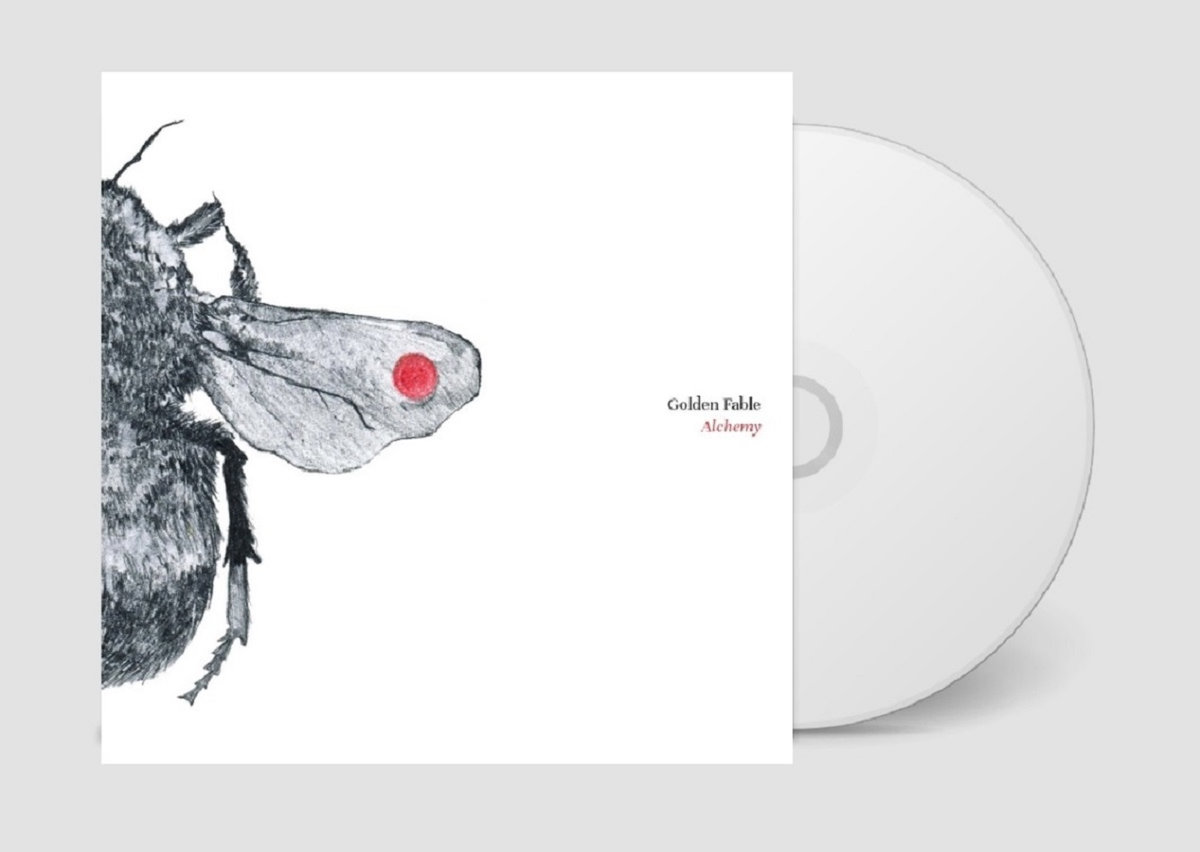 Fronted by the fluttering soprano vocals of Rebecca Palin, Welsh three-piece Golden Fable have hit upon an ethereal more-ish pop that reaches maturation on their third album. The folkish elements are still there but now surrounded by baroque orchestrations that amplify the drama and, eventually, the appeal. Arriving on lyric gatefold, there are moments that step too far into the operatic but tracks such as “Hold True” and the opulent “Trust” sound readymade to sweep listeners away at the close of an emotive boxset end sequence.
Fronted by the fluttering soprano vocals of Rebecca Palin, Welsh three-piece Golden Fable have hit upon an ethereal more-ish pop that reaches maturation on their third album. The folkish elements are still there but now surrounded by baroque orchestrations that amplify the drama and, eventually, the appeal. Arriving on lyric gatefold, there are moments that step too far into the operatic but tracks such as “Hold True” and the opulent “Trust” sound readymade to sweep listeners away at the close of an emotive boxset end sequence.
Saint Etienne Tiger Bay Boxset (Heavenly)
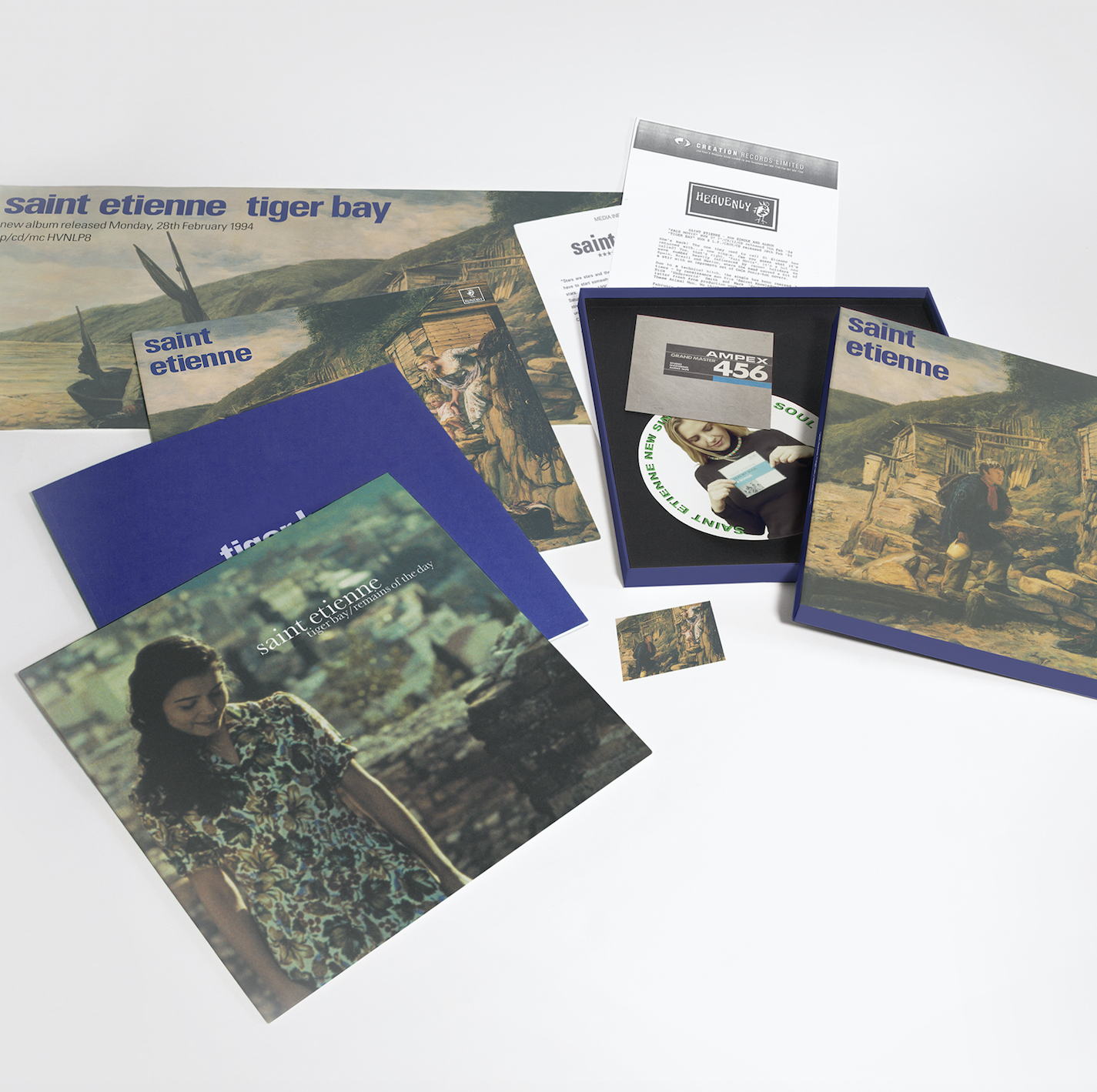 By the time of 1994’s Tiger Bay, their third album, Saint Etienne had established themselves unexpectedly as a regularly charting band. Their unlikely combination of thoughtful – occasionally twee- and very English suburban lyricism with electro-pop and Balearica proved, against the odds, to have national appeal. The boxset presents the original album spread out at 45 RPM over four sides, as well as a collection of extras and off-cuts and a further CD selection of unreleased arrangements. There’s also a 12” x 12” 28 page book of photos, memorabilia and interviews with each of the band, a poster, a sticker, and a reproduction of the album’s original press release. The attention to detail indicates what a cult Saint Etienne have become, but the set also showcases a bunch of unheard or hardly heard material. The album has a melancholic poignancy in places and this is only enhanced by newly unearthed cuts such as “Hate Your Drug”. There’s an unfussy charm to Saint Etienne that, when they get it right, retains the interest.
By the time of 1994’s Tiger Bay, their third album, Saint Etienne had established themselves unexpectedly as a regularly charting band. Their unlikely combination of thoughtful – occasionally twee- and very English suburban lyricism with electro-pop and Balearica proved, against the odds, to have national appeal. The boxset presents the original album spread out at 45 RPM over four sides, as well as a collection of extras and off-cuts and a further CD selection of unreleased arrangements. There’s also a 12” x 12” 28 page book of photos, memorabilia and interviews with each of the band, a poster, a sticker, and a reproduction of the album’s original press release. The attention to detail indicates what a cult Saint Etienne have become, but the set also showcases a bunch of unheard or hardly heard material. The album has a melancholic poignancy in places and this is only enhanced by newly unearthed cuts such as “Hate Your Drug”. There’s an unfussy charm to Saint Etienne that, when they get it right, retains the interest.
Robag Wruhme Venq Tolep (Pampa) + Nathan Micay Blue Spring (LuckyMe)
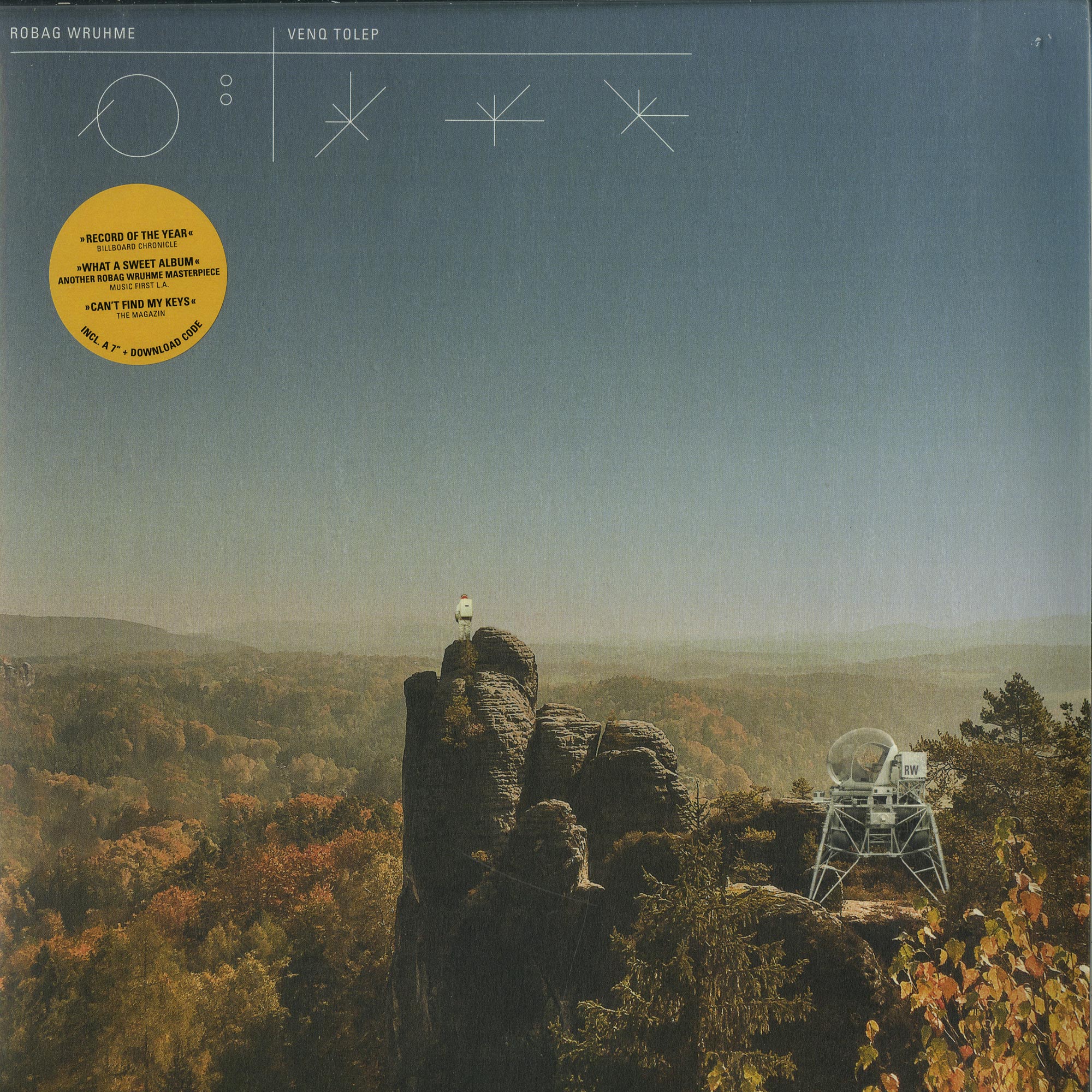 Two creative slices of 2019 electronica. German producer Robag Wruhme’s first album in eight years is a mellow and thoughtful affair but with plenty going on. Take the ambient soul-house pulse of “Nata Alma, created with Norwegian jazzers Sidsel Endrensen and Bugge Wesseltoft as typical of what’s on offer. Its tone is equivalent to coming across warm welcoming inn lights at dusk, and the whole album is like that, unhurried, gently experimental. It’s deep house, but not as we know it. Comes on double with a cover art postcard and a 7” single containing the ambient “Ila I” and the delicious trip-hoppy “Anton III”. Canadian Producer Nathan Micay has released a strong run of singles as Bwana but his debut album appears under his own name. Where Wruhme’s music engenders an unhurried sense of calm, Micay’s is busy and jammed to the hilt with ideas from all over the place. Taking cues from no one genre alone Blue Spring has a cinematic quality, with giant melodies gleaming from its rhythmic edifices. Much of it doesn’t adhere to dancefloor dynamism but some cuts do, notably the psy-trance monster “The Party We Could Have”. Comes on double with a sixteen page miniature graphic novel to illustrate the loose concept behind it. The short of it is that Micay offers a busy, young creativity, buzzing with colour and possibility where Wruhme is happy to use fewer tools and tricks to swing the ears slowly his way. In the end both are effective methods.
Two creative slices of 2019 electronica. German producer Robag Wruhme’s first album in eight years is a mellow and thoughtful affair but with plenty going on. Take the ambient soul-house pulse of “Nata Alma, created with Norwegian jazzers Sidsel Endrensen and Bugge Wesseltoft as typical of what’s on offer. Its tone is equivalent to coming across warm welcoming inn lights at dusk, and the whole album is like that, unhurried, gently experimental. It’s deep house, but not as we know it. Comes on double with a cover art postcard and a 7” single containing the ambient “Ila I” and the delicious trip-hoppy “Anton III”. Canadian Producer Nathan Micay has released a strong run of singles as Bwana but his debut album appears under his own name. Where Wruhme’s music engenders an unhurried sense of calm, Micay’s is busy and jammed to the hilt with ideas from all over the place. Taking cues from no one genre alone Blue Spring has a cinematic quality, with giant melodies gleaming from its rhythmic edifices. Much of it doesn’t adhere to dancefloor dynamism but some cuts do, notably the psy-trance monster “The Party We Could Have”. Comes on double with a sixteen page miniature graphic novel to illustrate the loose concept behind it. The short of it is that Micay offers a busy, young creativity, buzzing with colour and possibility where Wruhme is happy to use fewer tools and tricks to swing the ears slowly his way. In the end both are effective methods.
ALSO WORTHY OF MENTION
The Skints Swimming Lessons (Mr Bongo): The Skints are renowned as a live draw with punch and pull. They have, over their ten year recording career, journeyed from raucous ska-punk to a wider palate. Their fourth album which comes on bright blue transparent vinyl, includes guest appearances from reggae faces Proteje, Runkus and Jesse Royal and, despite containing sudden grunge guitar blow-outs such as “Learning to Swim” and “What Did I Learn Today?”, is mostly a poppy affair. It’s a sunshine album, playful and light, and deserves daytime radio airtime. The Skints should be pop stars. They’d make good ones. Comes with 12” x 12” lyric sheet.
R.E.M The Best of R.E.M. In Time 1988 – 2003 (REMHQ/Craft): A collection that over two records, with gatefold sleeve notes on each song by REM guitarist Peter Buck, lays out the band’s best-known tracks from their sixth album onwards (ie after they’d signed to Warner Bros) stopping at 2003’s “Animal”. This means they run from the alt-Byrds-ian “Orange Crush”’s ecological wordplay through the massive “Losing My Religion”-era material and on towards their drift into post-modernism. It’s their golden hits period, essentially. The odd thing is that, while many of these songs are individually enjoyable and some are classics, it doesn’t necessarily work as a whole album – something about the unchanging tone. Nevertheless, I’m not complaining about listening to “Man On The Moon” again. And again.
Lee Scratch Perry Rainford (On U Sound): As befits two old warriors of the eternal dubscape, Lee “Scratch” Perry (Rainford Hugh Perry, hence the title) and On U production wizard Adrian Sherwood (full disclosure: middle name Maxwell), this latest collaboration is exceptionally floaty and mellow (unlike, say, 1987’s excellent Time Boom X De Devil Dead), even if there are occasional bursts of mad energy, such as the catchy “Kill Them Dreams Money Worshippers”. Perry in concert is less than great these days, but put him together with Sherwood and the old magic sparkles to life. Check out “Cricket On The Moon” and “African Starship”. In fact, just put it on and let it play. Comes in word-strewn inner sleeve.
Deliluh Oath of Intent (Tin Angel) + Dark Star Safari Dark Star Safari (Arjunamusic) + Band Apart Band Apart (Crammed Discs)
So how about a new genre: avant-indie? It’s just another term for art rock really, but it’s a music journo tradition going back decades, inventing genres (although those days are gone). On this five-track EP in photo/lyric inner sleeve Toronto’s Deliluh veer between scratchy angular post-punk songs and mournful jazz-flavoured downtempo bits. They’re all about DiY, recording in communal spaces and sound like a band discovering themselves on the way to doing something more definitive. Dark Star Safari is a group put together by Norwegian jazz-tronic sorts Jan Bang, Eivind Aarset and Erik Honoré, alongside Samuel Rohrer the Berlin-based Swiss percussion don behind the Arjunamusic label they’re released on. Jan Bang has worked in the past with David Sylvian and that’s what this sounds a bit like. Slow, deliberately morose, with lots of space for ambient clatter and clutter, the airy vocals lead but all around the band is focused and earnest creating a bleak novel sound. And finally, Band Apart, putative godfather sorts for the newly invented avant-indie genre. Their credentials are impeccable. When they met in 1979 frontwoman Jayne Bliss was a New York art poet and musician M Mader was working on a project called Boring Music based around Suicide and Terry Riley. Together they created an EP (1981) and an album (1983), and this album gathers the former and five cuts from the latter in lyric/info inner sleeve. The music veers between clattering No Wave rhythmic exercises, feedback-laden proto-shoegaze and the occasional Cocteau Twins-ish attempt at pop. Comes with a four page 10” x 10” insert.
Mac DeMarco Here Comes the Cowboy (Caroline): In the age of Ed Sheeran and Lewis Capaldi Canadian songsmith Mac DeMarco gives singer-songwriters a good name. His chatty, quirky fourth album is super laid back with a lazily witty lyricism and stoned soul appeal. The whole is overlaid with strange gloopy production effects that make it more interesting than it otherwise might be but, while his style drifts towards old-fashioned easy listening upon occasion, he has a likeable charisma that carries the day. Comes on gatefold with 12” x 24” black’n’white poster.
The Young Ones of Guyana On Tour/Reunion (BBE): More likeable obscurity from BBE Records. This time it’s two albums of ska and calypso covers – or covers in a ska/calypso style - from a temporary touring unit who hit the UK in 1970 (when they recorded On Tour) and then reunited briefly in Canada three years later (for Reunion). It’s raw, fun stuff, with songs ranging from Bill Withers’ “Lean on Me” to Harry J Allstars’ “Liquidator” all assaulted with ramshackle glee, notable especially for the preposterous Farisa organ all over everything. Especially ace is a cheese-tastic yet engaging take on the theme from The Godfather. Comes on double in info gatefold.
Various Long Division – New Addition: Vol 1 (Long Division)
Back at the start of June, Wakefield held its annual Long Division Festival, celebrating local music, art and DIY culture and this compilation gathers together tracks by the artists who performed. It’s a grand idea executed well on yellow vinyl. The only “names” on board are Alessi’s Ark and Imperial Wax who acquit themselves well. Indie-flavoured Side A also features Broken Chanter, Mi Mye and Living Body but Side B is the one, with the demented ranting of Hello Cosmos, the mellow jazztronic experimentalism of Seckar, the sweet electro-pop of Mayshe Mayshe, the glitched songs of One Day, After School, and the straightforward Seventies-style songwriter pop of Disguises. A solidly enjoyable set of varied music.
From the Bogs of Aughiska From the Bogs of Aukhiska (Lone Vigil)
Third album from the aptly named Conchúir O’Drona who majors in spooked tone music spliced with sound effects. There’s a Celtic feeling too and a hint of doom metal spirit. Small portions are fiercer, such as the metallic electronica of “Of Gods and Fighting Men” while at other times the drones are overlaid with Irish voices discussing banshees. Building unease is undoubtedly part of the goal and it succeeds admirably while also creating a sense of gothic theatre. Comes in art/info gatefold.
Sonny Stitt Lone Wolf – The Roost Alternates (Warner Classics): The reputation of jazz saxophonist and Charlie Parker acolyte Sonny Stitt is sometimes overshadowed by the more renowned bebop giant, but just listen to his characteristically complex, virtuosic (yet unforced) take on, say, “The Nearness of You” and he surely stands in his own light. This collection gathers alternate takes Stitt recorded for Roost Records between 1952 and 1957, none of them ever on vinyl before and, while mostly of interest to full-on bebop aficionados, there’s much here for the layman to enjoy too.
Frank Carter and the Rattlesnakes End of Suffering (International Death Cult): I don’t understand why Frank Carter isn’t a major rock star. This album and his last one, 2017’s Modern Ruin, are full of anthemic rock that’s spikes with just enough punk fizzle to keep it from crappy bombast. He has a similar earnest roar to Manic Street Preachers’ James Dean Bradfield, he’s wild live, and he looks the part. This time round he has Rage Against The Machine’s Tom Morello lending a hand on the riffed up “Tyrant Lizard King” but, in reality, he needs nothing except his own songwriting talent. Tasty songs such as “Love Games” leave his hardcore punk past way behind but still have emotional bite, and there are enough loud-quiet-loud numbers to keep the moshpit crews happy. Comes on white vinyl.
Kongo Dia Ntotila 360° (Pussyfoot): Kongo Dia Ntotila are a London-based band whose M.O. is to combine Congolese party music, jammed full of twinkling fast soukous guitar, with the complexity and improvisation of jazz. Their latest album, their second, boasts rowdy Afro-flavoured chants and a danceable rhythm section but also allows just enough room for the sax and trumpet to take flight. Or perhaps the joy of it is that they don’t actually allow them room but they do so anyway! It is, in other words, an untrammelled party sound, spread over two discs with a 12” x 12” art/info insert.
Frankie Knuckles & Eric Kupper The Director’s Cut Collection (Sosure): This is a first for theartsdesk on Vinyl: this double album in info gatefold arrives in its own picture frame featuring the album’s cover art. Five years after the death of house don Frankie Knuckles, it’s a collection that celebrates the work of his collaboration with long term production partner Eric Kupper. After years working together, the duo formally named their production unit Director’s Cut in 2011 and this compilation pulls together their output, including remixes of Ashford & Simpson and Joey Negro and the last tune Knuckles ever played out, their mix of Lou Rawls’ “You’ll Never Find Another Love Like Mine”. Some of it’s too smooth for this writer’s ears, going for the more soul boy end of the house music spectrum where the original house sound was often crankier and cruder sounding (per force, due to its makers using cheap, thrift shop analogue equipment). Thus I’m unenthused by, say, the rejig of “The Whistle Song” but there’s tasty fare here, nonetheless, notably a euphoric version of Marshall Jefferson’s “House Music Anthem”.
Daniel Tompkins Castles (KScope) + Ben Osborn Letters From the Border (Nonostar) + Burning House Anthropocene (Miohmi): Three very different ways of warping sonic boundaries to achieve effect. The latest album from nu-prog musician Daniel Tompkins of the bands TesseracT and Skyharbor one moment layers hyper-produced heavy rock sounds against multi-tracked vocals to whip up a storm, then the next, as on “Kiss” crunches in Prodigy-like electronics to shake things up. The epic qualities and vocals are not to my taste but Tompkins plays his studio like a pro’. Poet-composer Ben Osborn, on the other hand, winds his sound right down to a delicate, rustic avant-garde backdrop, created in league with Nonostar Records owner Alex Stolze. Osborn’s lonely voice, a little like that of Momus, plays off against a violin-addled glitch-scape, the overall effect evocative, filmic, melancholy and late night. Comes in lyric inner sleeve. Finally, a brash double in art gatefold from Southampton trio Burning House who partly channel Mogwai but with grunge songwriting thrown in for good measure. Full of ideas that sprawl about their giant wedges of guitar, they sound like band who’d tear the lid off a venue in concert.
AND IN VERY BRIEF
Stealing Sheep Big Wows (Heavenly): Liverpudlian three-piece Stealing Sheep open their album with a weak cut which is unwise but then things then perk up. The all-female band have developed a lush electro-pop sound, machine-driven but human. Comes on wild vinyl, transparent dotted with pink, green, blue and yellow. Put it against your eyes and freak.
Bobby Oroza This Love (Big Crown): Produced by Timmion Records’ rated team Cold Diamond & Mink, the proudly retro debut album from Finnish soul man Bobby Oroza retains a raw feel while channelling classic soul through his plaintive vocals.
Imogen Heap The Music of Harry Potter and the Cursed Child (HP West End/Megaphonic/Sony): Already reviewed on theartsdesk, the unconventional musician’s varied set of suites now arrives on a chunky well-mastered double in gatefold.
August Spies Corruption of the Human Heart (August Spies): The solo project of Justin Schlosberg, vocalist with heavy rockers Hell Is For Heroes, is nothing like his former band. This 10” offers solid folk-tinged baroque torch songs somewhere between Pulp’s moodier fare and Glymjack’s Greg McDonald.
Stanley Brinks and the Wave Pictures Tequila Island (Fika) Two alt-indie cult acts for the price of one. Stanley Brinks of Herman Düne is a good match for the loose American-laced sound that The Wave Pictures muster. Comes in lyric inner sleeve on spectacular vinyl, transparent but spattered with teal!
Showaddywaddy Gold (Demon): Where better to end than Showaddywaddy and all their hits. They had a lot of them and they went on a lot longer than you might think. Their Fifties chic might have peaked in 1976 with “Under the Moon of Love” but they had their last Top 40 hit in 1982, long after punk and come and gone.
We welcome any and all vinyl for review. Please hit thomash.green@theartsdesk.com for a postal address.

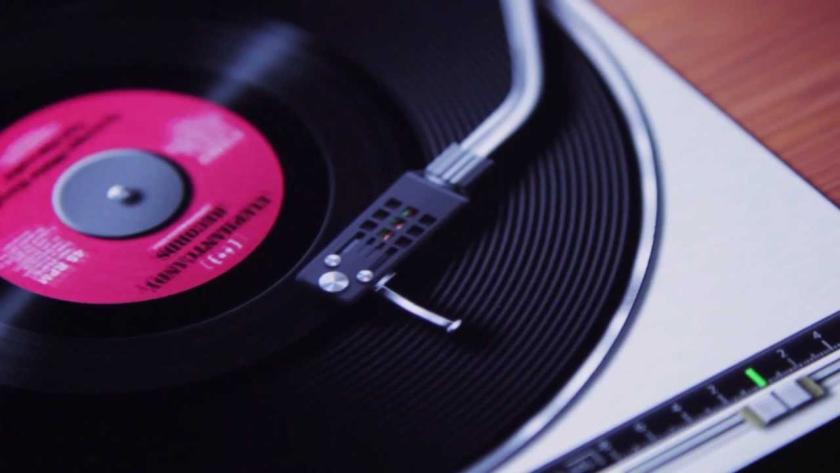













Add comment